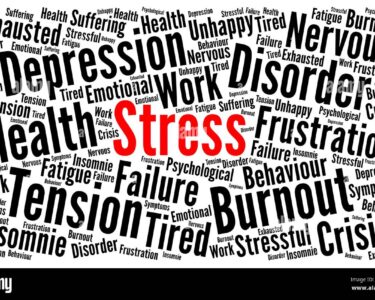The Benefits of Regular Health Check-ups
I. Introduction
In the modern, fast-paced world, people frequently prioritize their busy lives over their health. However, ensuring good health should be a top priority for everyone. Regular health check-ups play a pivotal role in maintaining overall well-being and preventing potential health complications. This article explores the numerous benefits of making health check-ups a routine part of life, emphasizing the importance of early detection and the positive impact on one’s quality of life.
II. Preventative Health Measures
One of the key advantages of regular health check-ups is their role in preventative care. By visiting healthcare professionals at scheduled intervals, individuals can identify health issues at an early stage, when they are most treatable. Early detection not only improves treatment outcomes but also reduces the financial burden of extensive medical procedures.
III. Health Monitoring and Disease Prevention

Regular check-ups allow individuals to keep track of vital health indicators such as blood pressure, cholesterol levels, and body mass index (BMI). This data helps identify potential risk factors, allowing for necessary lifestyle adjustments to prevent the onset of chronic conditions.
IV. Promoting Longevity and Well-being
Taking care of one’s health through regular check-ups enhances overall quality of life and promotes longevity. By identifying and addressing health concerns proactively, individuals can lead healthier and happier lives, free from preventable health issues.
V. Access to Professional Medical Advice

Health check-ups provide an opportunity to consult with healthcare experts. These professionals offer guidance on maintaining a healthy lifestyle, including advice on nutrition, exercise, and stress management.
VI. Managing Chronic Conditions

For individuals already living with chronic conditions, regular check-ups are even more crucial. By monitoring these conditions consistently, healthcare providers can adjust treatment plans as needed, preventing complications and improving patients’ quality of life.
read more about The Role of Nutrition in Preventing Chronic Diseases
VII. Stress and Mental Health Management

Health check-ups not only focus on physical health but also play a role in mental well-being. Addressing stress-related health concerns during these visits can significantly impact an individual’s emotional and physical health.
VIII. Building a Strong Doctor-Patient Relationship
Regular visits to healthcare professionals foster a strong doctor-patient relationship based on trust and understanding. Open communication during check-ups allows for better healthcare outcomes, as doctors gain a deeper understanding of their patients’ health needs.
IX. Health Screenings and Early Detection

Age-appropriate health screenings are an essential component of regular check-ups. These screenings aid in the early detection of various health issues, enabling timely intervention and improved prognoses.
X. Customized Health Plans

Each individual’s health needs are unique, and regular check-ups allow for the creation of personalized health plans. Tailoring strategies based on specific requirements ensures a more effective approach to overall well-being.
XI. Health Education and Awareness

Health check-ups empower individuals through knowledge. Healthcare professionals provide information about preventive measures, empowering patients to take charge of their health.
XII. Empowering Proactive Decision-making

Regular health check-ups encourage individuals to take proactive measures for their well-being. By actively participating in their healthcare journey, individuals can make informed decisions that positively impact their lives.
XIII. Motivation for Lifestyle Changes

Health check-ups offer encouragement to adopt healthier habits. Tracking progress and celebrating small achievements can motivate individuals to stay on track with their health goals.
XIV. Setting Health Goals

During regular check-ups, individuals can work with healthcare professionals to set realistic and achievable health goals. Regular monitoring helps track progress and make necessary adjustments along the way.
XV. Conclusion
In conclusion, the benefits of regular health check-ups are numerous and invaluable. From early detection of health issues to empowering individuals to take charge of their well-being, check-ups play a vital role in promoting a healthier lifestyle and preventing future health complications. Make a commitment to prioritize your health by scheduling regular check-ups and embrace a life of improved well-being.
FAQs
- How often should I get a health check-up?
- The frequency of health check-ups depends on various factors, including age, existing health conditions, and family history. It’s best to consult your healthcare provider to determine the ideal schedule for you.
- Are health check-ups covered by insurance?
- Many health insurance plans cover preventive care, including regular check-ups. However, coverage may vary, so it’s essential to review your insurance policy or check with your provider.
- Can regular check-ups prevent serious health issues?
- Yes, regular health check-ups can help in the early detection and prevention of serious health issues. Early intervention often leads to better treatment outcomes and improved overall health.
- What should I expect during a health check-up?
- During a health check-up, your healthcare provider will assess your overall health, conduct screenings if necessary, discuss any health concerns, and offer personalized advice for maintaining or improving your well-being.
- At what age should I start getting health check-ups regularly?
- Health check-ups are essential throughout life. It’s recommended to start regular check-ups from childhood and continue into adulthood and old age for optimal health management.





 Viesearch - The Human-curated Search Engine
Viesearch - The Human-curated Search Engine

30 Comments